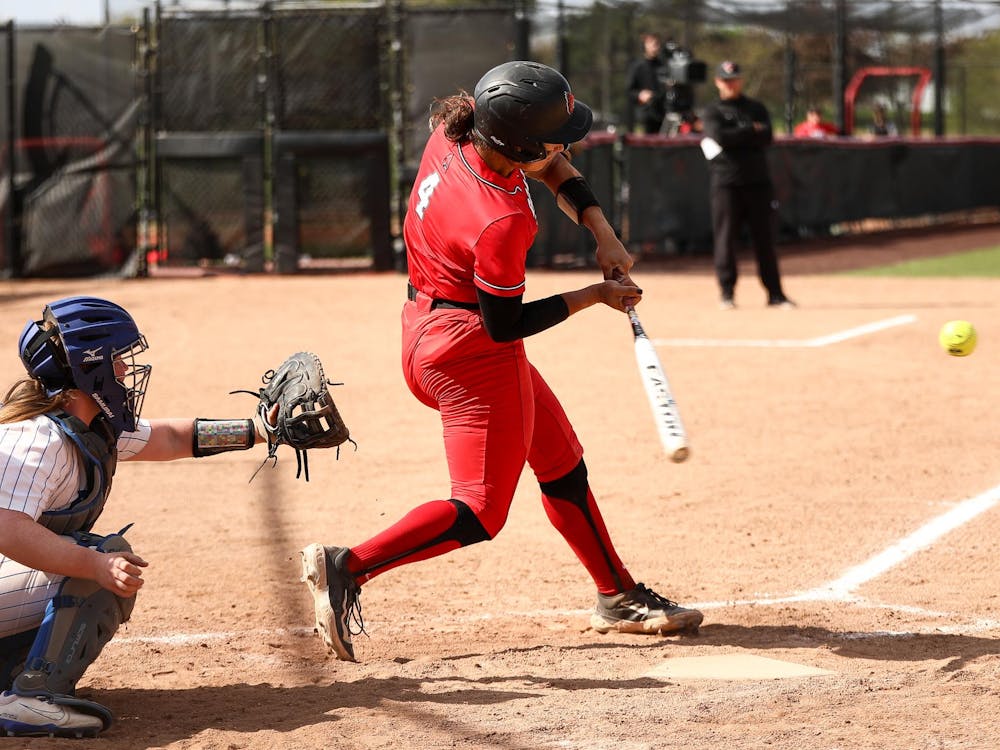At the conclusion of each academic year, the Daily News grades the outgoing Student Government Association (SGA) executive slate on how effective it was in accomplishing its platform points, along with the organization’s impact on Ball State.
In past years, the Daily News endorsed a slate the editorial board felt was best equipped to take on the responsibility of leading SGA. The editorial board elected not to continue this practice over the last two elections, as there was no clear consensus on which slate we felt was best for the university.
During the 2020 SGA election, the Daily News analyzed the feasibility of each slate’s platform, including Bold’s plans for its term in office. Our analysis found only two of the slate’s 11 platform points being potentially doable over Bold’s term — a trend that largely held true.
RELATED: the Daily News’ point-by-point analysis of Bold’s year in office
Despite entering the 2020 election with some favorable plans, including increasing access to SafeZone training and forming a partnership with the Counseling Center, the editorial board believes the Bold slate repeated many of its predecessor's mistakes.
Much of what we said about the Elevate slate’s performance during the 2019-20 school year is applicable to Bold’s performance. Not only did Bold overpromise and underdeliver on its platform points, but it also failed to adequately adapt to the challenges of the COVID-19 pandemic during its term, which saw Ball State students facing some of the most painful and difficult experiences of their lives.
Over its term, Bold did little to alleviate the burdens of the pandemic on the student body, beyond one sparsely attended Counseling Center event. SGA’s most significant pandemic-related legislation was the introduction of “COVID bags,” which were care packages for students sent to quarantine housing.
Senators passed the budget request for "COVID bags" in February — six months into the school year and long after cases plateaued .
We understand Bold’s desire to complete its platform points. In fact, we applaud the slate members for trying to stay true to their vision of student government. However, they were ultimately too focused on achieving their platform points rather than listening to and addressing student concerns.
We understand the pandemic made student outreach difficult, but we feel Bold could have made more of an effort to invite students into Zoom office hours or create more informal approaches to sharing concerns rather than a few Qualtrics surveys throughout the school year.
If Bold’s lack of completed platform points was a casualty of shifting SGA’s resources to tackling pandemic-related issues, we would understand its lack of progress. However, in this time of need, Bold rarely made its mark — with the possible exception of implementing menstrual products in the L.A. Pittenger Student Center restrooms — both in terms of platform points and pandemic aid.
This all ties back to the central question our editorial board posed last year: What role does SGA effectively serve?
As we noted, the SGA Constitution states the organization must “be the voice of the student body,” “serve as the representative body of the students before Ball State University and the Muncie community” and “advocate and bring attention to issues of concern on behalf of the student body.”
These rules are fairly vague, something we also attribute to the current state of SGA’s operations. The last two years of SGA, in particular, have been defined by a lack of organizational focus on what the senate is permitted to do.
Though slates’ goals are lofty, and often well-intentioned, the organization seems to fundamentally misunderstand its reach. Take, for example, Bold’s platform point of installing heated bus stops for the winter months. The slate campaigned on this idea, but it failed due to impracticality, said Jim Lowe, associate vice president for facilities and planning management.
On the other end of the spectrum, Bold also promised to “improve organization connections with SGA,” which we graded as being “somewhat complete” in our review of the slate’s platform points. This somewhat abstract point was graded higher than the slate’s bus stop idea because we could at least see it was something SGA could realistically accomplish.
While Bold slate members aimed high with their platform points and made the mistake of believing they have more authority and influence than SGA does, the editorial board commends them for beginning conversations on many of their platform points we graded as “somewhat complete.”
Diversity training for all faculty did not happen as a university-wide program, but Bold slate members took the initiative to reach out to individual colleges to help administrators advance inclusive excellence plans.
The free menstrual products program also appears to be promising for future slates to expand. While products were not as widely available as Bold hoped, the $4,500 SGA set aside in its 2020-21 budget may be able to sustain the program into the next academic year.
From the Daily News’ previous interviews with the Bold slate and faculty comments on their work with SGA, it seems this slate focused its time and resources on developing partnerships with different offices, including the Counseling Center and Dining Services. This is certainly a positive asset for the organization, but slates should be wary of taking credit for departmental work that would have been accomplished without their input.
One example of this is the spring 2022 class AFAM 150, the intercultural dialogues course which was already developing to be taught as an Honors College class in fall 2020 before Bold campaigned with this point. Slate members contributed to the growth of this class, but the Daily News found it was achieved predominantly because of the work of Emily Rutter, associate professor of English and co-chair of the African American Studies program, rather than Bold slate members.
We, the student voters who elect our representatives in SGA, have noticed the concerning lack of research on their goals and misunderstanding of their own authority beyond just the Bold slate, as evidenced by the 2021 SGA election results.
The new slate, Strive, ran unopposed in the most recent election and still only secured 71.4 percent of the vote, with the “no confidence” option earning the remaining votes. Only 644 students voted.
Strive took a different approach than previous slates, campaigning on focuses rather than platform points. This new strategy may help SGA become more adaptable and open to listening to student concerns, but it is imperative future slates research each of their goals and increase transparency with the student body on their progress.
It is our hope that future SGA slates will not continue to make the same mistakes year in and year out — a change that will only come when SGA is able to understand its limits and responsibilities as an organization.
For the Daily News to assign Bold a letter grade like it has for previous slates, there would have to be an agreed upon set of standards for slate success. As we feel SGA doesn't live up to — or understand — its assigned purpose, we believe Bold has earned a grade of incomplete.
Grade: Incomplete





